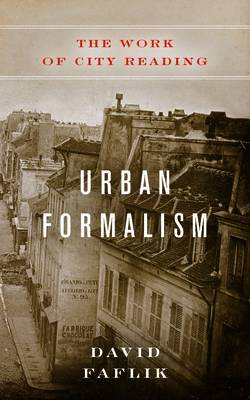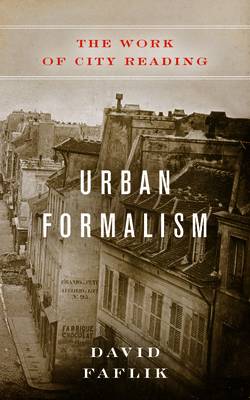
- Retrait gratuit dans votre magasin Club
- 7.000.000 titres dans notre catalogue
- Payer en toute sécurité
- Toujours un magasin près de chez vous
- Retrait gratuit dans votre magasin Club
- 7.000.000 titres dans notre catalogue
- Payer en toute sécurité
- Toujours un magasin près de chez vous
Description
Urban Formalism radically reimagines what it meant to "read" a brave new urban world during the transformative middle decades of the nineteenth century. At a time when contemporaries in the twin capitals of modernity in the West, New York and Paris, were learning to make sense of unfamiliar surroundings, city peoples increasingly looked to the experiential patterns, or forms, from their everyday lives in an attempt to translate urban experience into something they could more easily comprehend. Urban Formalism interrogates both the risks and rewards of an interpretive practice that depended on the mutual relation between urbanism and formalism, at a moment when the subjective experience of the city had reached unprecedented levels of complexity.
This book not only provides an original cultural history of forms. It posits a new form of urban history, comprising the representative rituals of interpretation that have helped give meaningful shape to metropolitan life.Spécifications
Parties prenantes
- Auteur(s) :
- Editeur:
Contenu
- Nombre de pages :
- 144
- Langue:
- Anglais
- Collection :
Caractéristiques
- EAN:
- 9780823287680
- Date de parution :
- 07-04-20
- Format:
- Livre broché
- Format numérique:
- Trade paperback (VS)
- Dimensions :
- 127 mm x 203 mm
- Poids :
- 217 g







